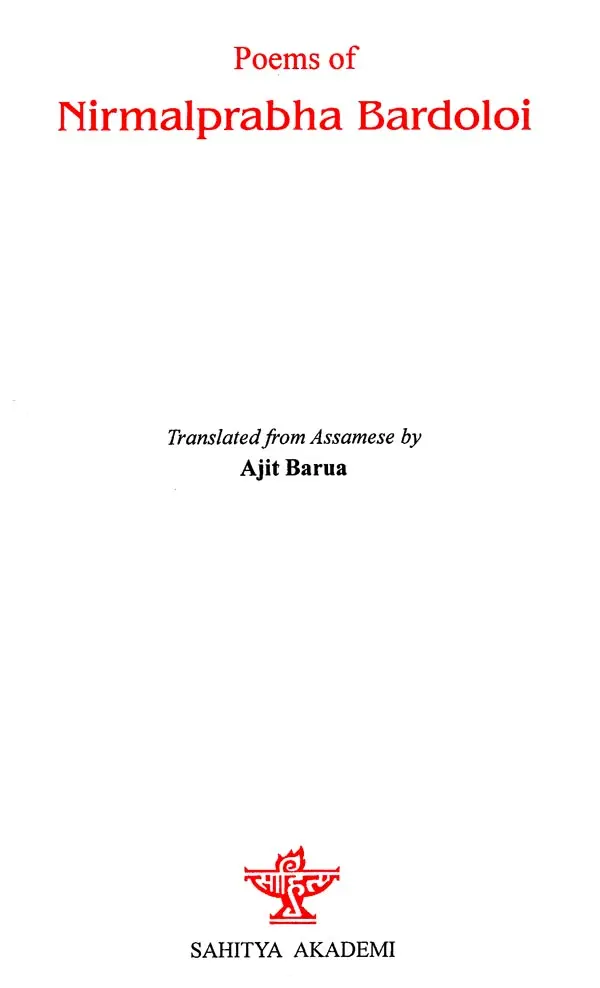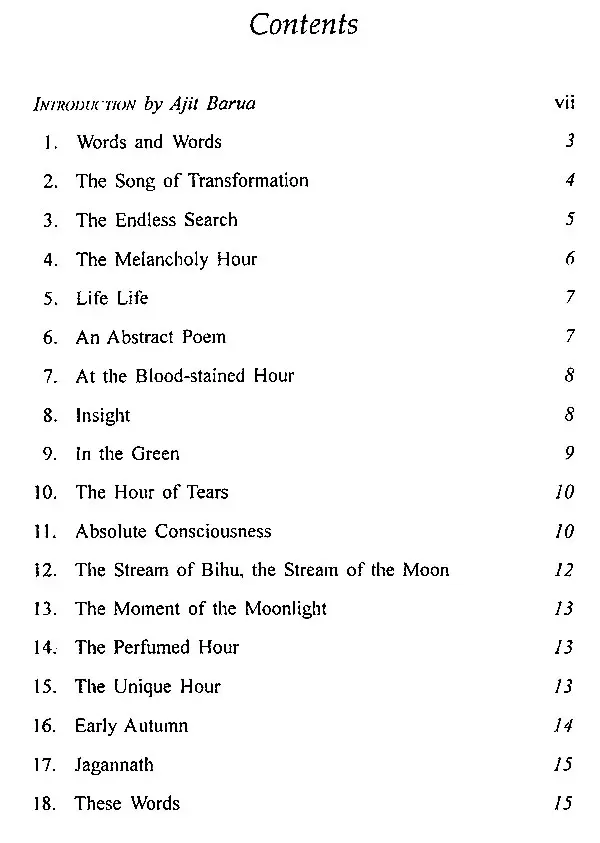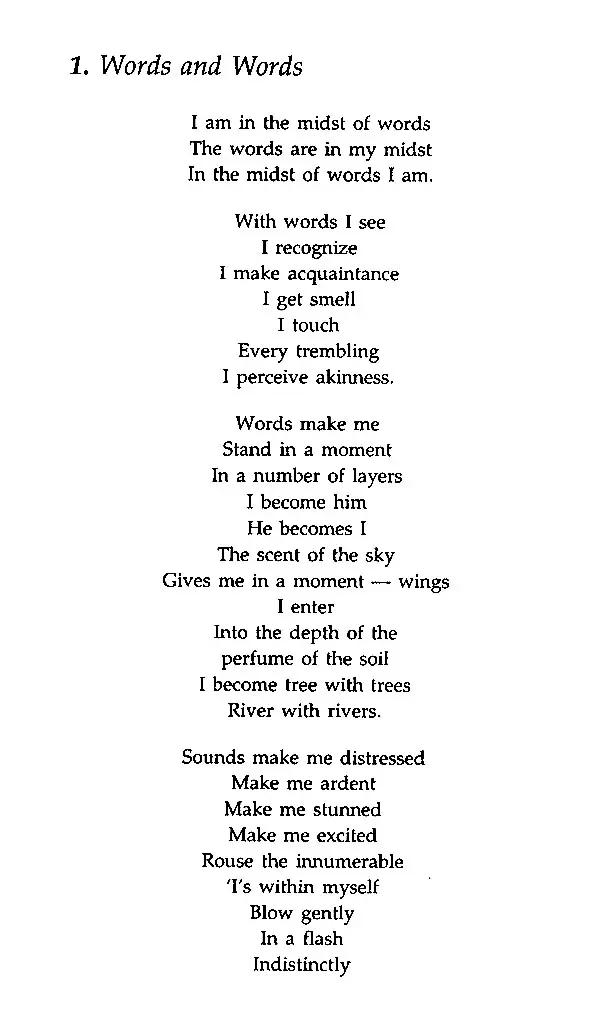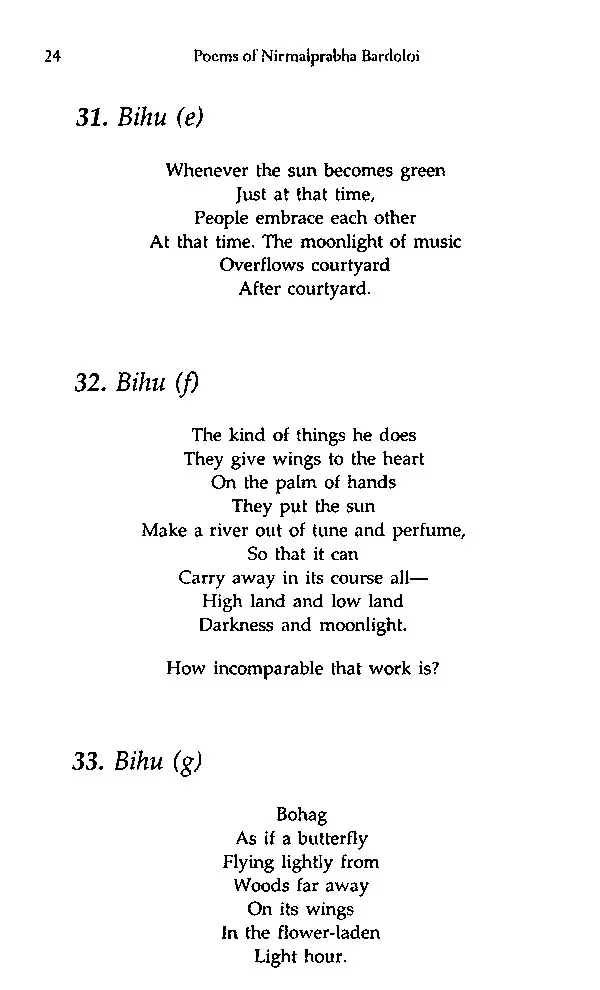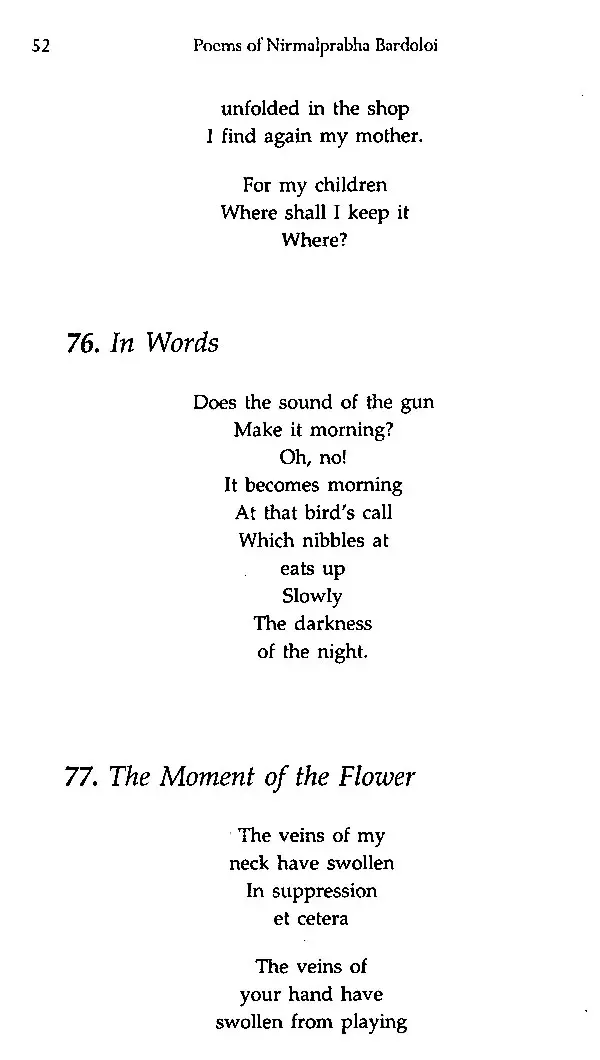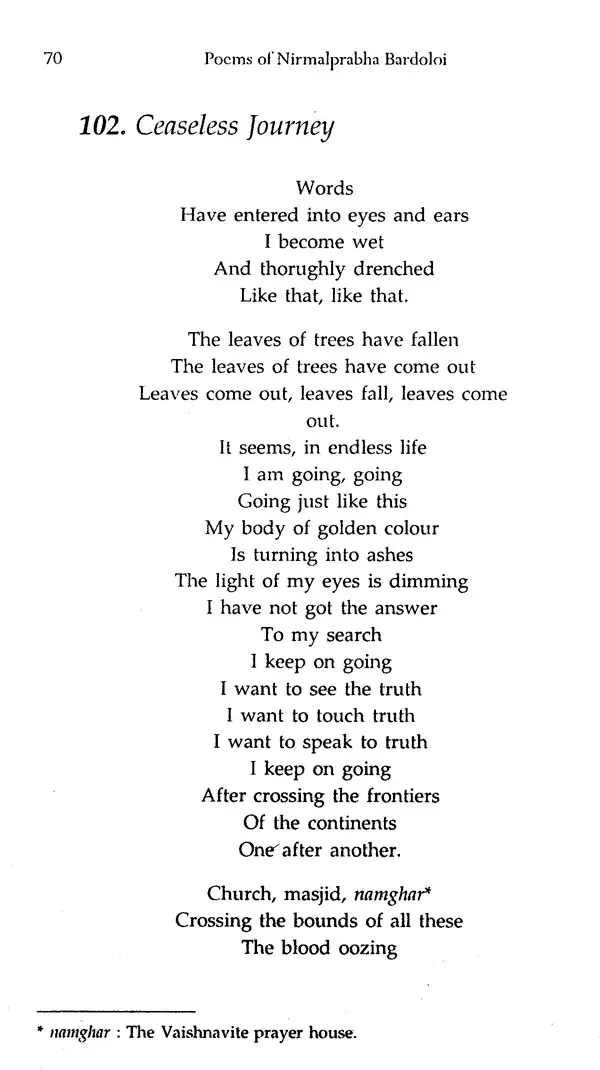
Poems of Nirmal Prabha Bardoloi
Book Specification
| Item Code: | UAM472 |
| Author: | Ajit Barua |
| Publisher: | SAHITYA AKADEMI, DELHI |
| Language: | English |
| Edition: | 2006 |
| ISBN: | 9788126022991 |
| Pages: | 84 |
| Cover: | PAPERBACK |
| Other Details | 8.50 X 5.50 inch |
| Weight | 130 gm |
Book Description
Nirmal Prabha Bardoloi (1933-2004) was one of the finest lyric poets in Assamese in the twentieth century. She has written over 100 books on Assamese literature and culture. She was a teacher in Gauhati University and retired as Jawaharlal Nehru Professor and Head of Assamese Department. Winner of various awards like the Rashtrapati Award, Sahitya Sabha Award, etc., she won the prestigious Sahitya Akademi Award in the year 1983 for her book on poems Sudirgha Din Aur Ritu. She was elected President of the Asom Sahitya Sabha in 1991.
The poems included in this collection were selected by the poet herself. The translations were also guided by her. The translations reflect her unique genius, her love for the Assamese people and their way of living.
Ajit Barua was born in Guwahati in 1926 and was educated at Guwahati, Kolkata and Paris. He began his career as a teacher of English and finally retired from the Indian Administrative Service in 1986. He has written in Assamese, English and French and has translated widely from the French and English. He has received a number of literary awards including the Sahitya Akademi and the Bharatiya Bhasha Parishad Awards.
When the late Nirmalprabha Bardoloi (I hate to put the late efore her name, she is so alive in my memory!) asked me to translate some of her poems into English, I put in a mild protest saying that I was not the right person to do that. For, I was a different kind of writer altogether. She told me that the Sahitya Akademi which would be publishing them, had insisted that the translator must himself be a poet. I was not very sure of that and flattered myself that it was probably she herself who had chosen me!
I, however, went on translating while mildly protesting that her kind of mystical writing was much beyond my comprehension. But she went on insisting, and I went on translating, with one condition that while I translated, she must sit in front of me. It is all the more painful for me now that when the translations are ready for being published, she should not be sitting in front of me.
For me, she is one of the finest lyricists-in the sense of a writer of poems meant to be sung-in the Assamese language. ven I who am no singer at all used to sing one or two of her songs, and irreverent as I am and she seven years younger, used to parody one of them in her presence. But she was always smiling everything away-the very image of tolerance. In fact, in our long acquaintance, I never saw her annoyed and least bit at anything at all-the very image of tolerance.
While I went on translations, I slowly realised how extraordinary a poet she was! She had an intuitive apprehension of the mysterious-even mystical-power of words. The very first poem of this collection ("Words and Words") shows that apprehension.
